What’s the Difference Between a Quiche, Frittata, & Omelette?
Ihat exactly is the difference between an omelette, frittata, and quiche? I am a connoisseur of crustless quiche. I don't have the patience for making pie crust; I maybe do it once every 5 years or so. And I really just am not that big a fan of baking in general. Cooking you can wing it. You can throw anything and everything into a pan with a couple of eggs and it will almost miraculously turn into something. Baking on the other hand? Baking requires precision. Expertise. Scales for measurement. Carefully chilled or room temperature butter.
Now, some people have the time and energy for this. I know tons of people who adore baking and will jump at any and every opportunity to break out the pastry flour. I am not one of those people, though. And, for anyone else who absolutely want a quiche without having to make a pie crust? I have an entire article on The Fundamentals of Crustless Quiche.
Every now and then, when I say that I like to make crustless quiche, though, it prompts the question of: Well, isn't that just a frittata? And the answer is... kind of. But not really.
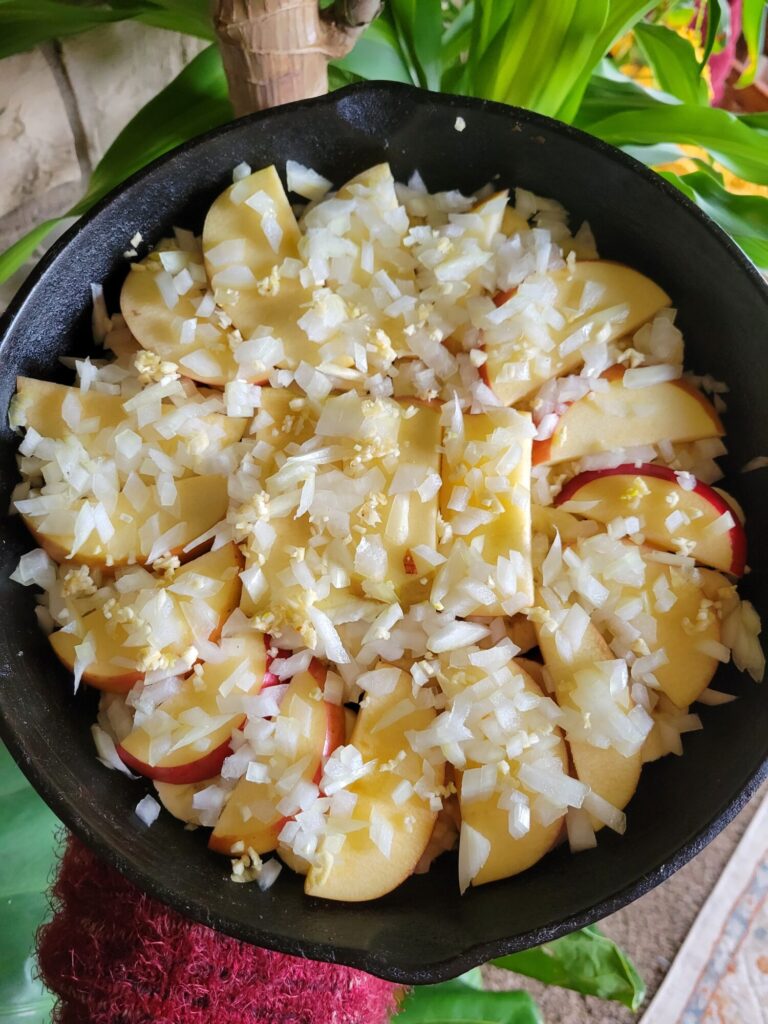
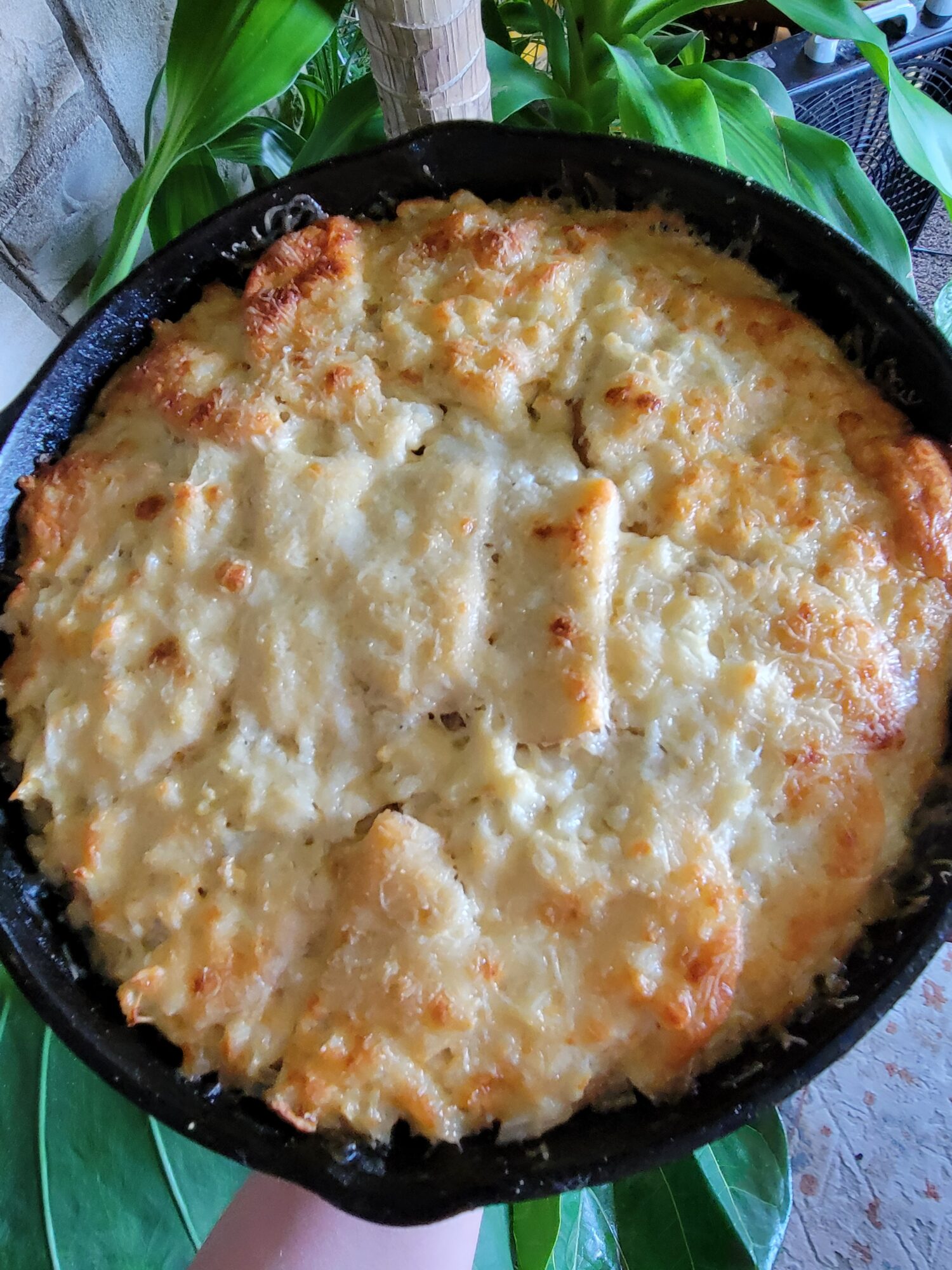
What Is a Quiche?
For starters, a quiche is an egg-based custard baked inside of a pastry crust. The custard is typically made from egg whisked with milk or cream. The pastry crust also typically contains butter and is similar to a pie crust. Although it can be made with a flakier crust. And it tends to contain a variety of fruits, vegetables, meat, seafood, and/or cheese.
Quiche tends to be best known as hailing from France. Although there are several varieties of quiche-like creations around the world.
I tend to make crustless quiche. The argument can be made that a quiche without a crust is not in fact a quiche. Although I'd more like to say that it's a modification of a quiche. It requires a qualifier. There are dairy-free quiche. Crustless quiche. Vegan quiche. While these do all take on the same basic quiche-making techniques, there is a caveat to their being quiches.
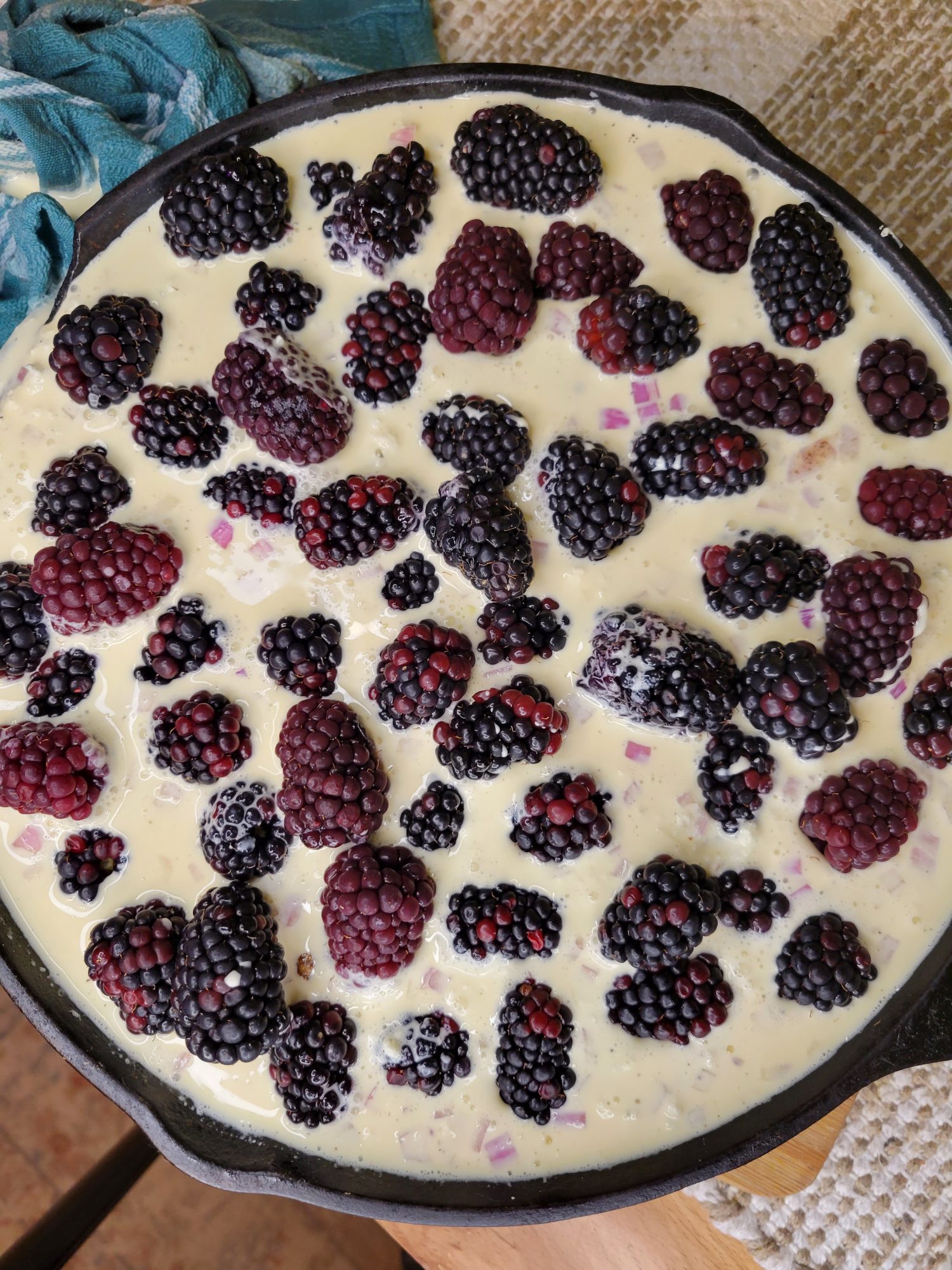
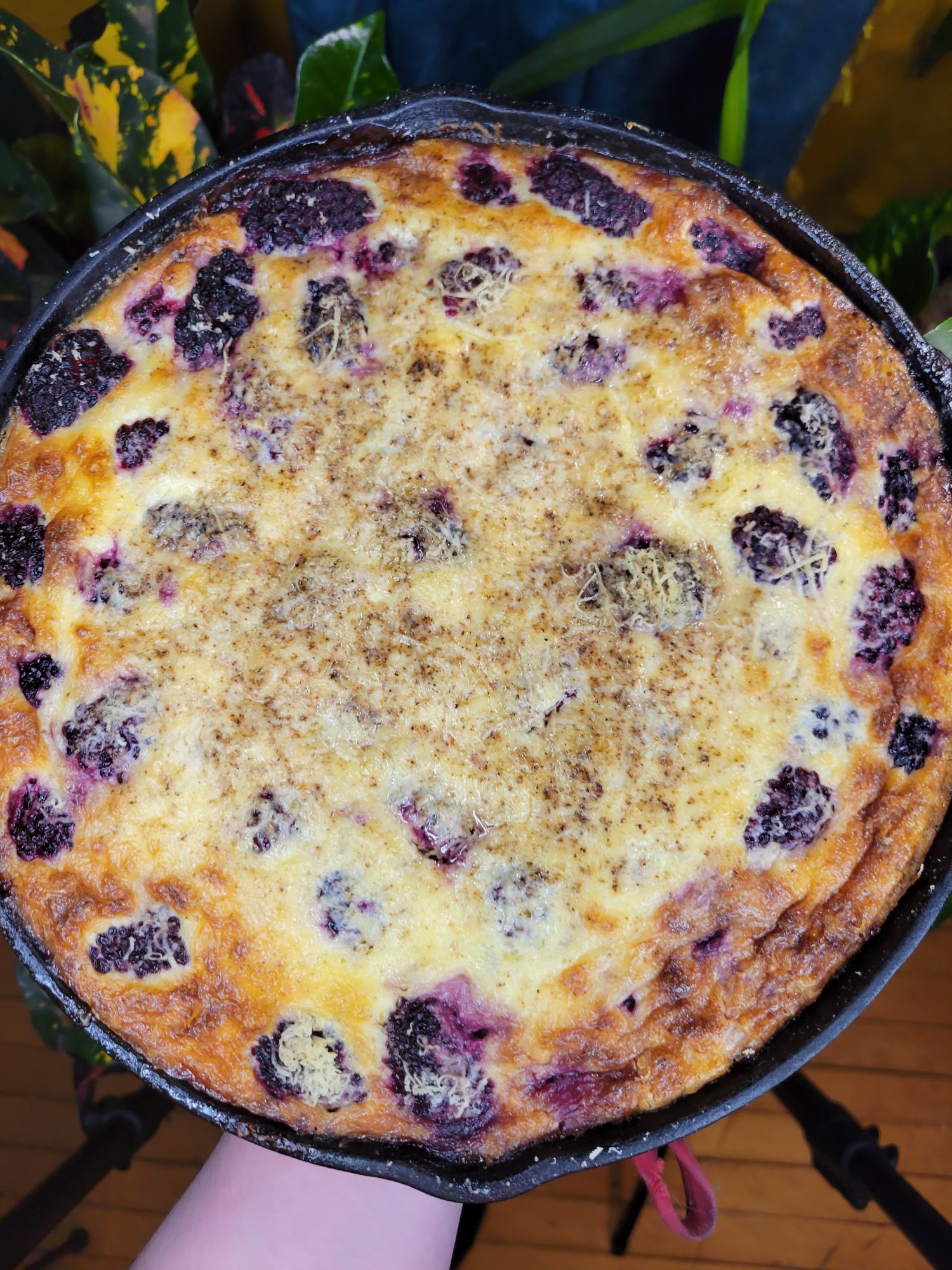
Is a Sweet Quiche Really a Tart?
Quiche tend to be almost exclusively savory. They're often described as a savory tart. I'd almost argue that a quiche is inherently savory and any quiche that is sweet might simply be the broader category of a tart and not actually a quiche. Especially since tarts are more broadly defined as an open-faced pastry. Tarts tend to be sweet and are typically fruit- and/or custard-based. Although they do more broadly encompass any sweet or savory food with eggs.
I'm thinking of this almost in the same way that I would consider a sweet form of bread a cake. Bread tends to contain a bit of sweetness to it. Although if you add enough sugar, it ceases to bread and you should just dollop some frosting on top and call it a cake. Now, whether bread is simply a form of less sweetened and more fermented cake? Is a debate for another day. Although the same type of logic applies here: with the addition of enough sweet ingredients, it's not longer a quiche and is more broadly a tart.
Now, I did say "almost" because I do make sweet quiches on occasion and I do still call them quiche. I don't even explain much about it being a sweet quiche. It more just shows up with blackberries on top and is obviously more of a dessert than a breakfast food. So, as much as I want to say that a sweet quiche is an oxymoron and defies the definition of a quiche? I must conclude that a quiche is more defined by being egg-based than it is inherently a savory dish.


Is a Crustless Quiche a Frittata?
Frittatas are also typically a savory egg-based dish without a crust. When the two of them are placed side-by-side, they can easily appear almost indistinguishable. However, they have a vastly different method of cooking. While quiche are slowly baked in the oven, frittatas are slowly fried on the stove. This really makes them more similar to an omelette than a pastry.
Quiche also tends to be a custard and is more dairy-based than frittatas. And, while a frittata can contain milk, cream, and/or cheese? It's not the main component of the dish. It's really more like an omelette in this regard. Where, even though an omelette may contain the same ingredients as a quiche? We rarely confuse the two of them.
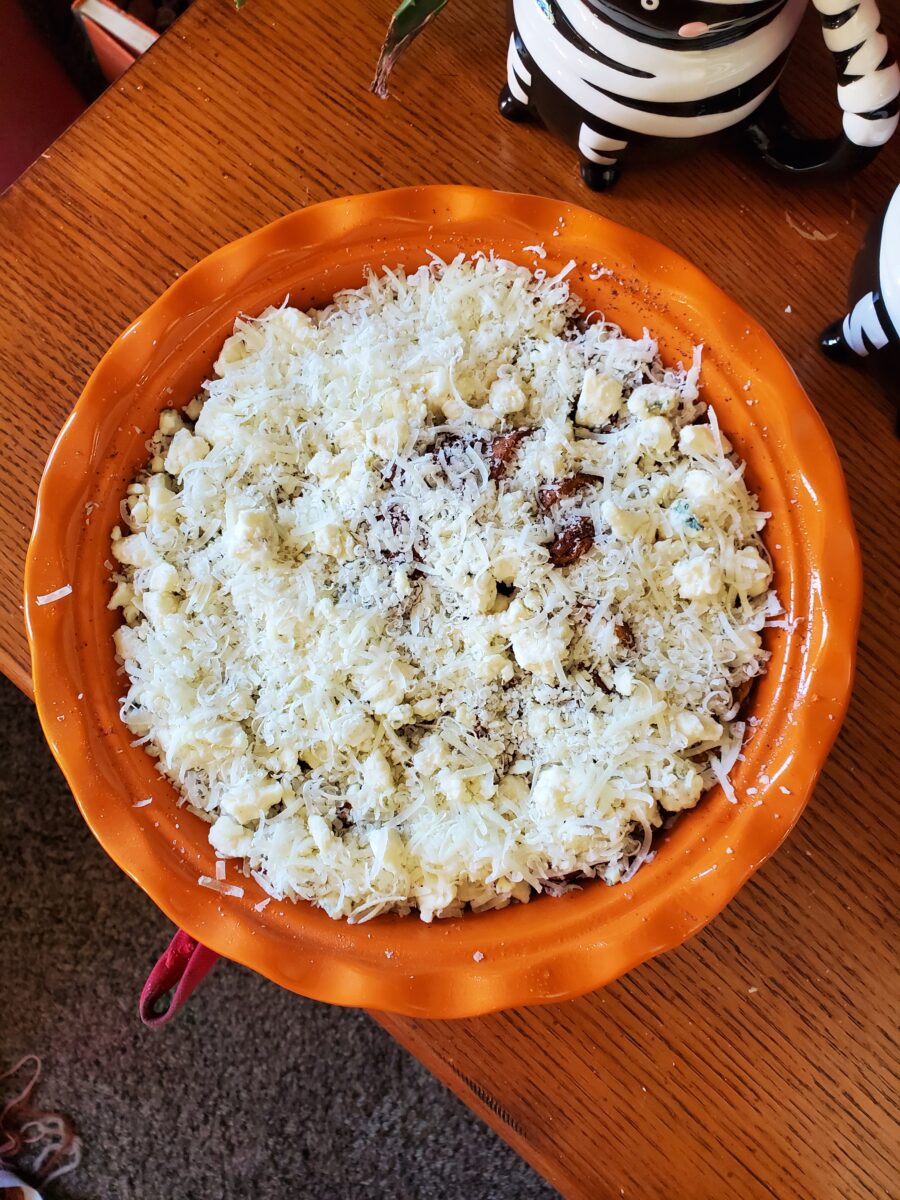

Why Are Some Frittatas Baked?
The origin of the word frittata comes from the Italian friggere, or "fried" (Vocabulary.com's Frittata).
If it isn't fried? It isn't a frittata.
This happens all of the time. It's because the internet has absolutely no oversight. You can call something whatever you want and absolutely no one is going to stop you.
Some food bloggers lie intentionally. They know that they're making a quiche or an omelette, instead of a frittata. But calling something a frittata gives them more views. This happens a lot in other artistic fields. Costume and historical dress bloggers tend to call stays, bodices, and really anything that cinches the waist a "corset." Not because they don't know the difference between them, but because the audience searching for them doesn't know the difference. Therefore, truncating all of them into an easier manageable term term or phrase. Food bloggers tend to do the same thing. If everyone calls something a "frittata?" Then, people are more likely to find their website if you also call it a frittata.
Other food bloggers don't actually know what they're making. They either heard someone else call them by the wrong name, followed another recipe that categorized them incorrectly, or just didn't bother to look up the difference and went with the monicor that they're most familiar with. This sounds dishonest, but it's really a simple mistake to make. If someone has a tendency to make omelettes all of the time, they might not realize that they're veering into frittata or crustless quiche territory.
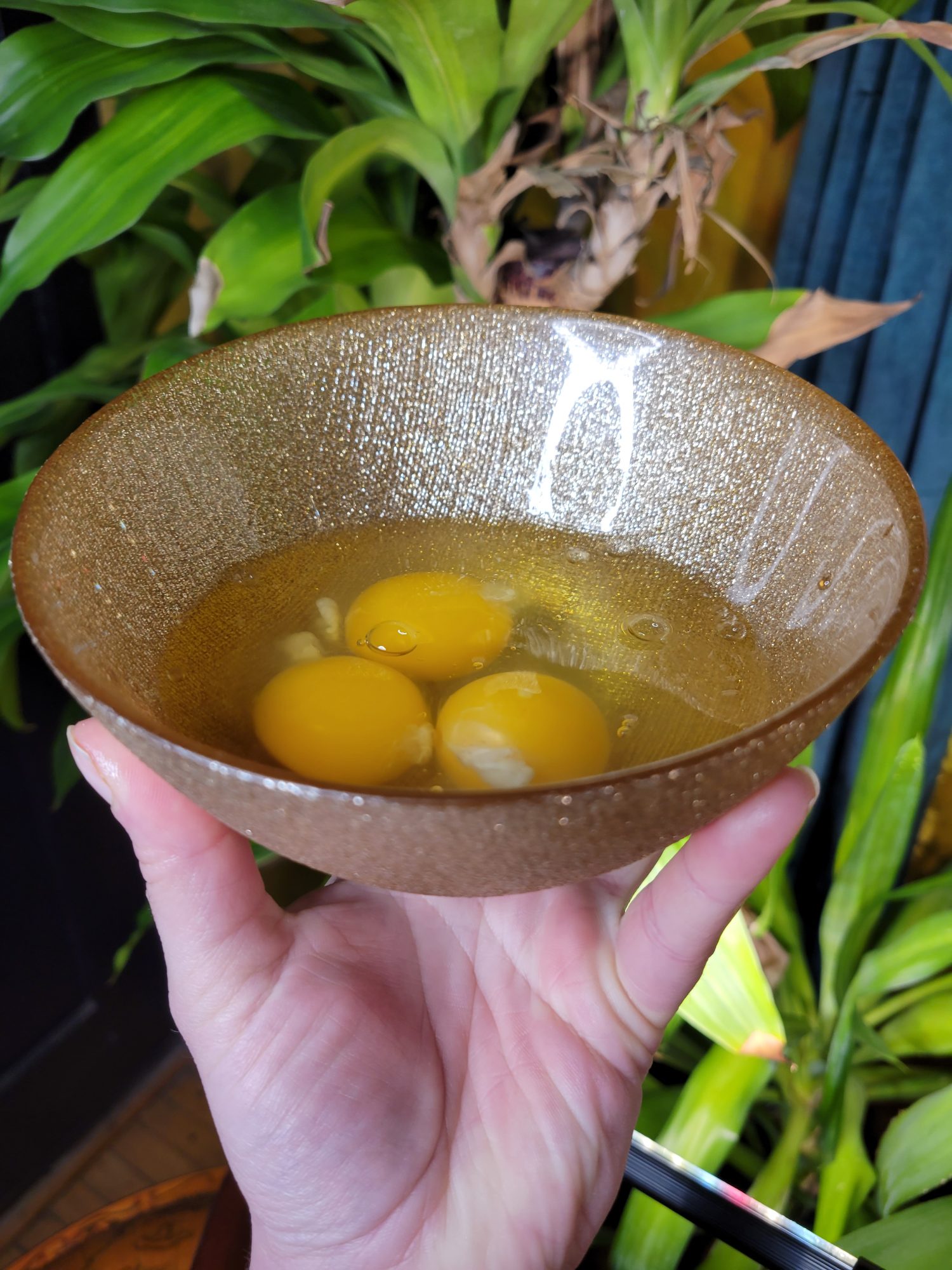
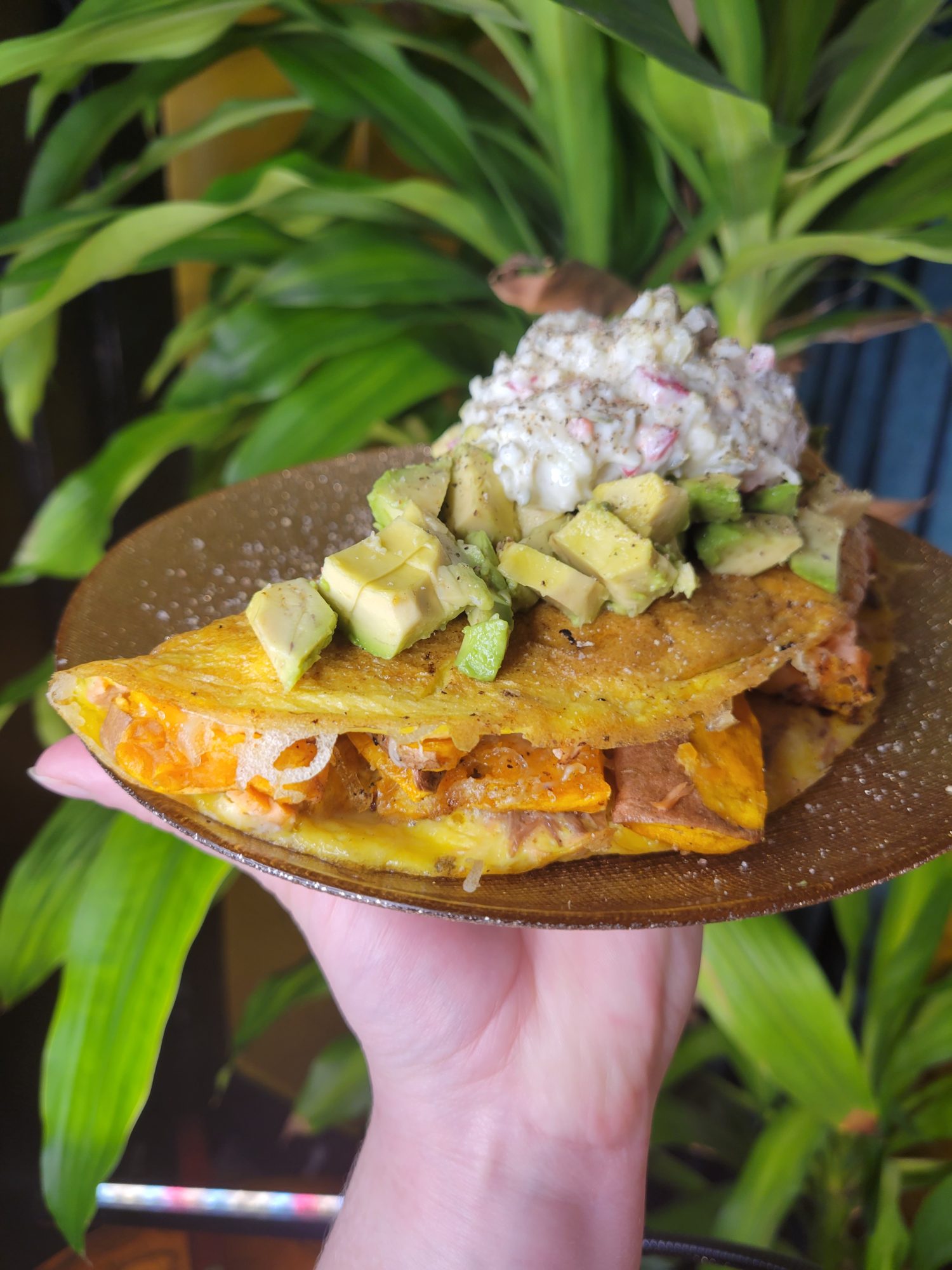
What's the Difference Between a Frittata and an Omelette?
Frittatas are oftentimes called "open-faced omelettes." This is kind of true. And it does beg the question of what exactly is the difference between frittatas and omelettes. Both contain more eggs than they do dairy and are cooked in a skillet on the stovetop. And they both tend to be savory, but can contain a number of fruit, vegetable, meat, seafood, and/or dairy.
The main difference between the two of them is predominantly time. Frittatas are slowly cooked. This gives them a slightly fluffier consistency and makes them, on the surface, look more like a quiche than an omelette at first glance because of the texture of the egg. Although they also tend to have a considerable amount more egg and toppings than an omelette does. Which can also give them more of a quiche-like appearance than an omelette.
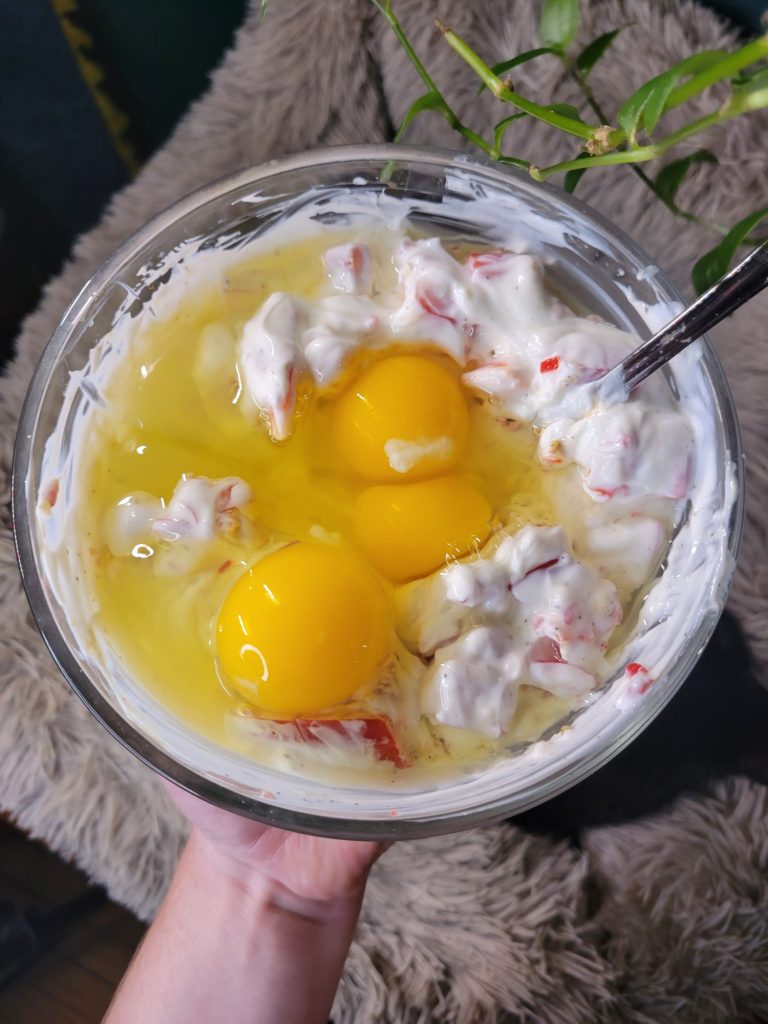
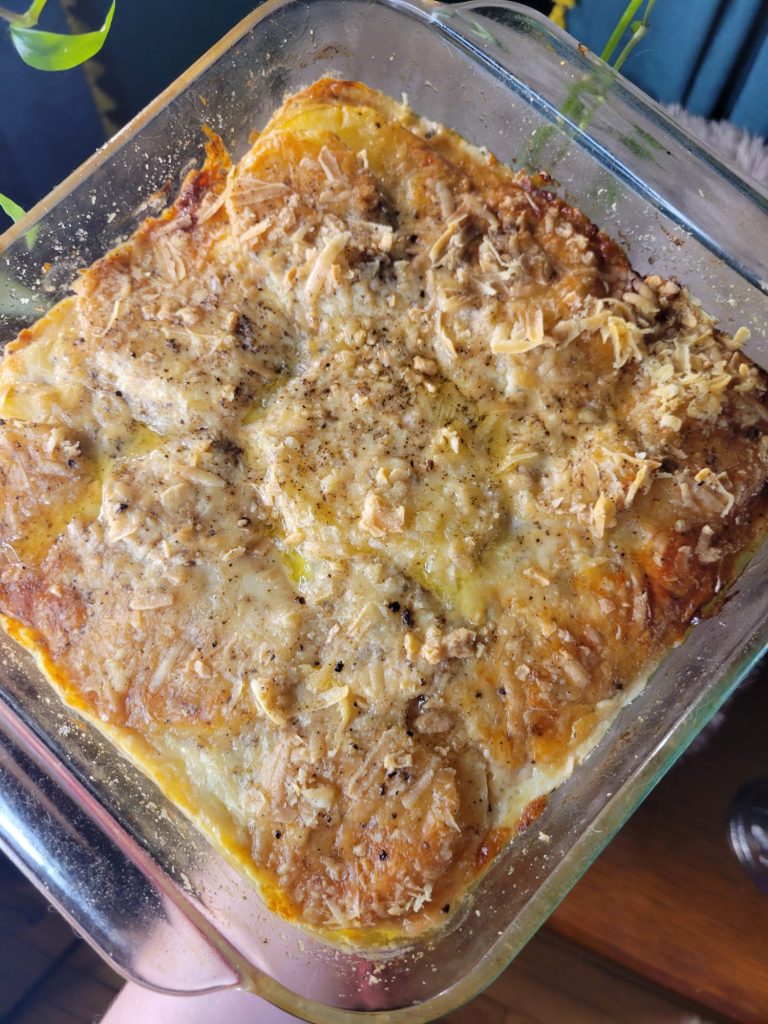
Special Mention to Potato Bakes
I also have to give a special shout-out to potato bakes. The other day I described it to one of my friends as kind of like a crustless quiche. Although I don't know if it can be a quiche if it isn't round.
Potato bakes contain dairy and eggs. They're baked in the oven. And they really do quite closely resemble all of these other breakfast delicacies. They even contain a lot of the same ingredients. I frequently put potatoes, puréed squash, peppers, spinach, and parmesan. I even occasionally add in some dijon mustard, which I almost exclusively use for the purpose of making quiche. The main difference between the two is that a potato bake is more of a lasagna with layers of potatoes and cheese. Thereby making potato bakes a casserole.
Although an argument could be made that the two are in fact the same thing. If I put all of the same ingredients in a round pan? I probably would call it a quiche rather than a potato bake. This type of thing does tend to happen where, depending on where you are in the world and what culinary influences are at hand? A lot of dishes are strikingly similar and it's more the history behind them than the dishes themselves that creates this distinction. I've made spaghetti and called it that at the time. Only to eat it cold the next day and call it "pasta salad," instead. Nothing about the pasta or its ingredients changed by being cooled. Nevertheless, we call the exact same meal hot and cold two entirely different things.
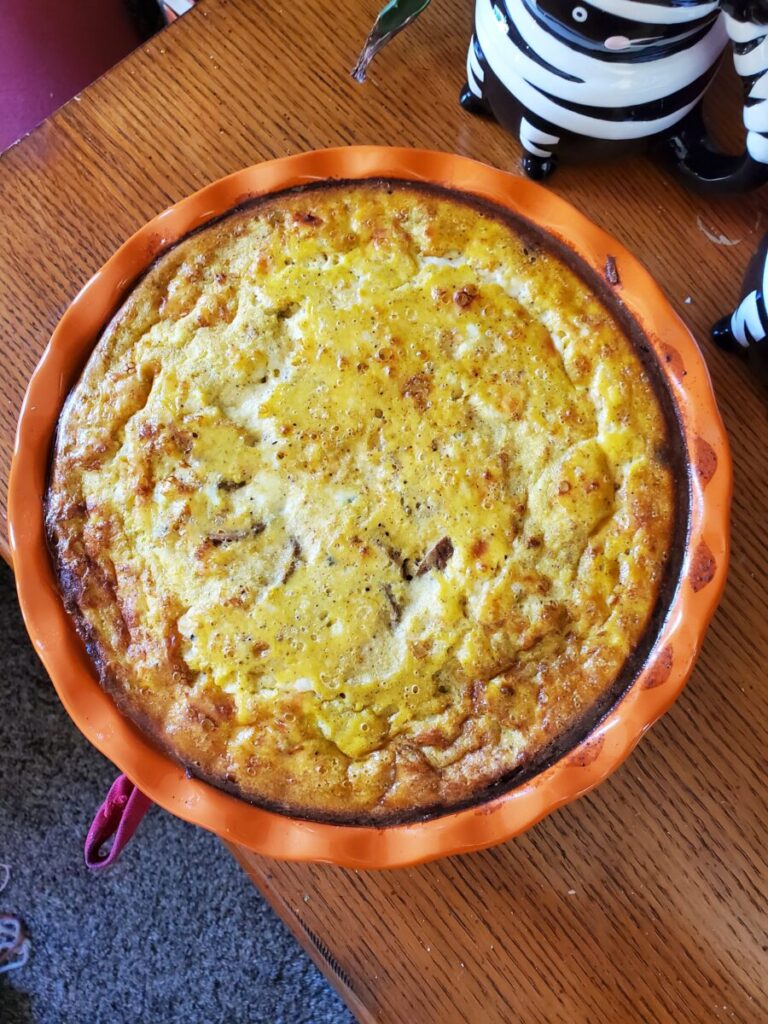
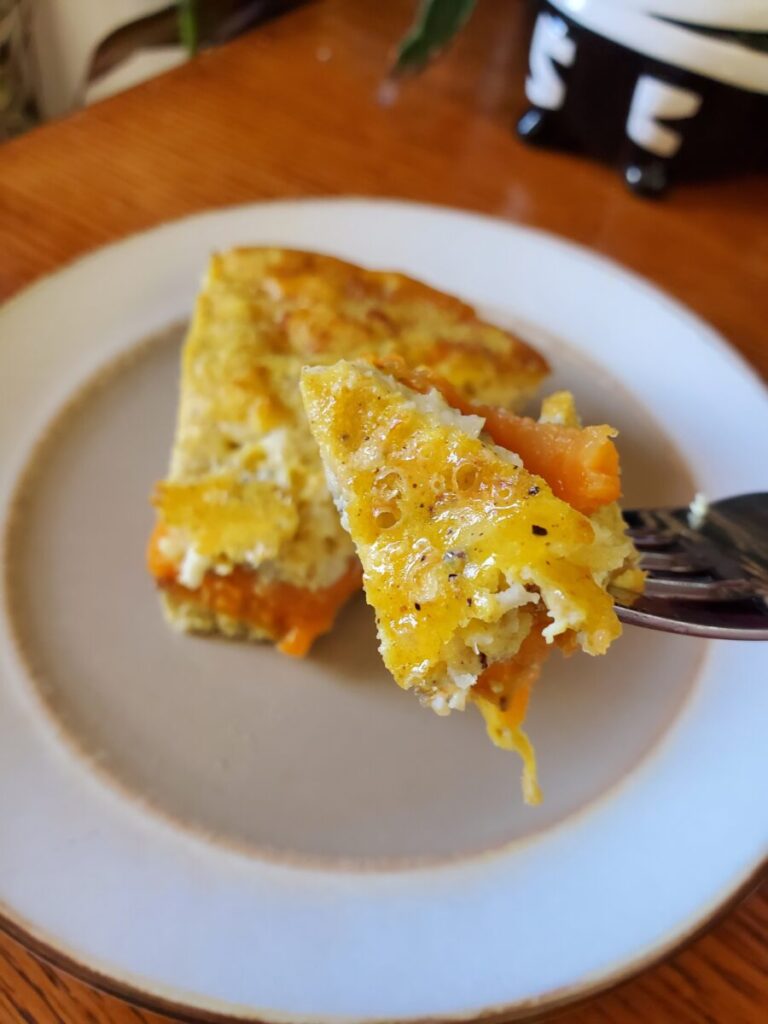
Conclusions About the Difference Between a Quiche, Frittata, & Omelette
The real question is: If you used all of the same ingredients for a quiche, a frittata, and an omelette... Would they all be the same thing? I frequently make quiche and omelettes in the exact same cast iron skillet with very similar ingredients.
The thing is that each of these foods is more defined by how they're made than what they consist of. Which is why I call a crustless quiche a quiche. Not because a quiche is inherently defined by having a pastry crust or consisting of a custard. It's more aptly defined by the way it's slowly baked in the oven. Likewise, a frittata is slowly fried on the stove, and an omelette is quickly fried on the stove.
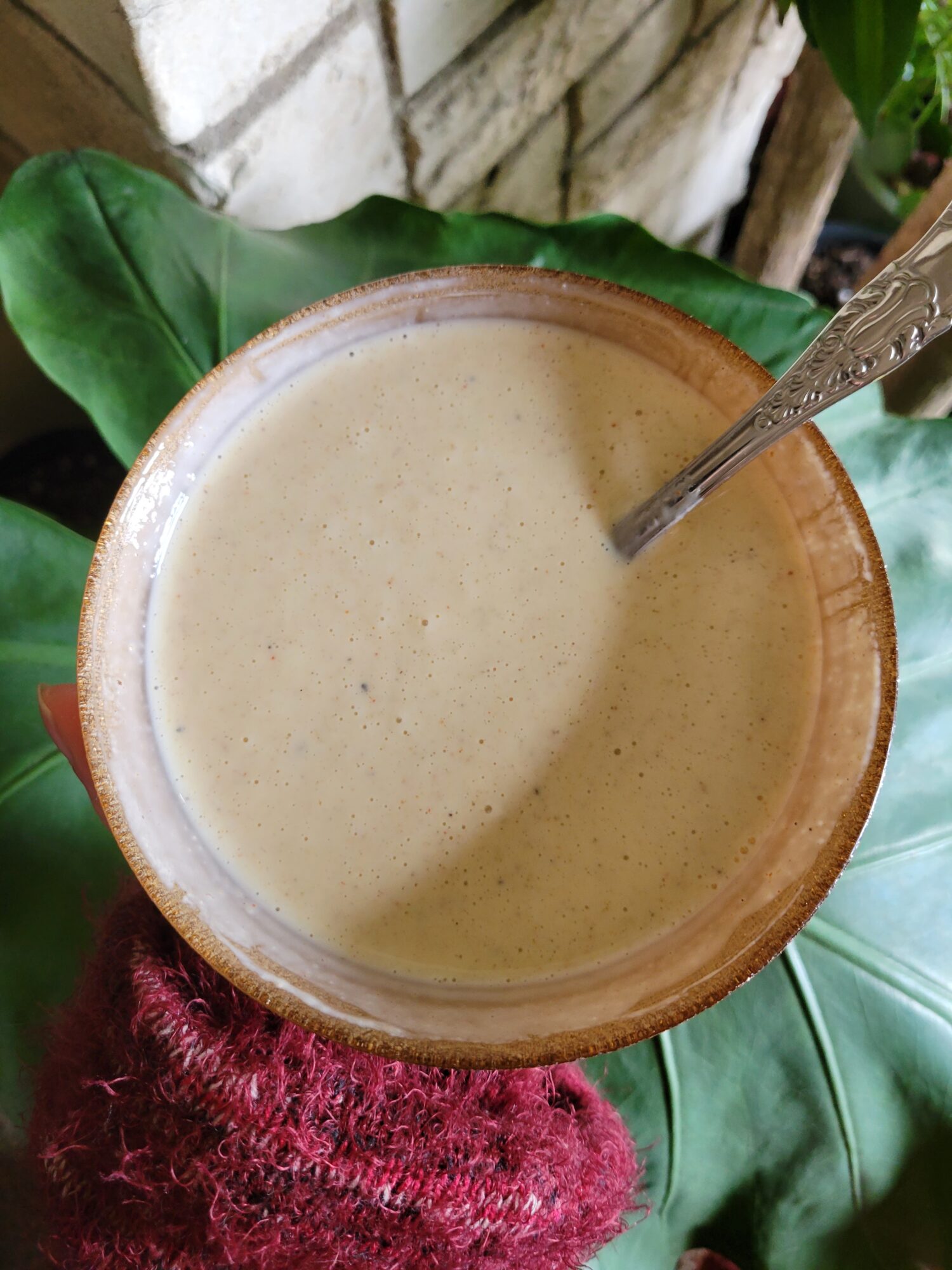
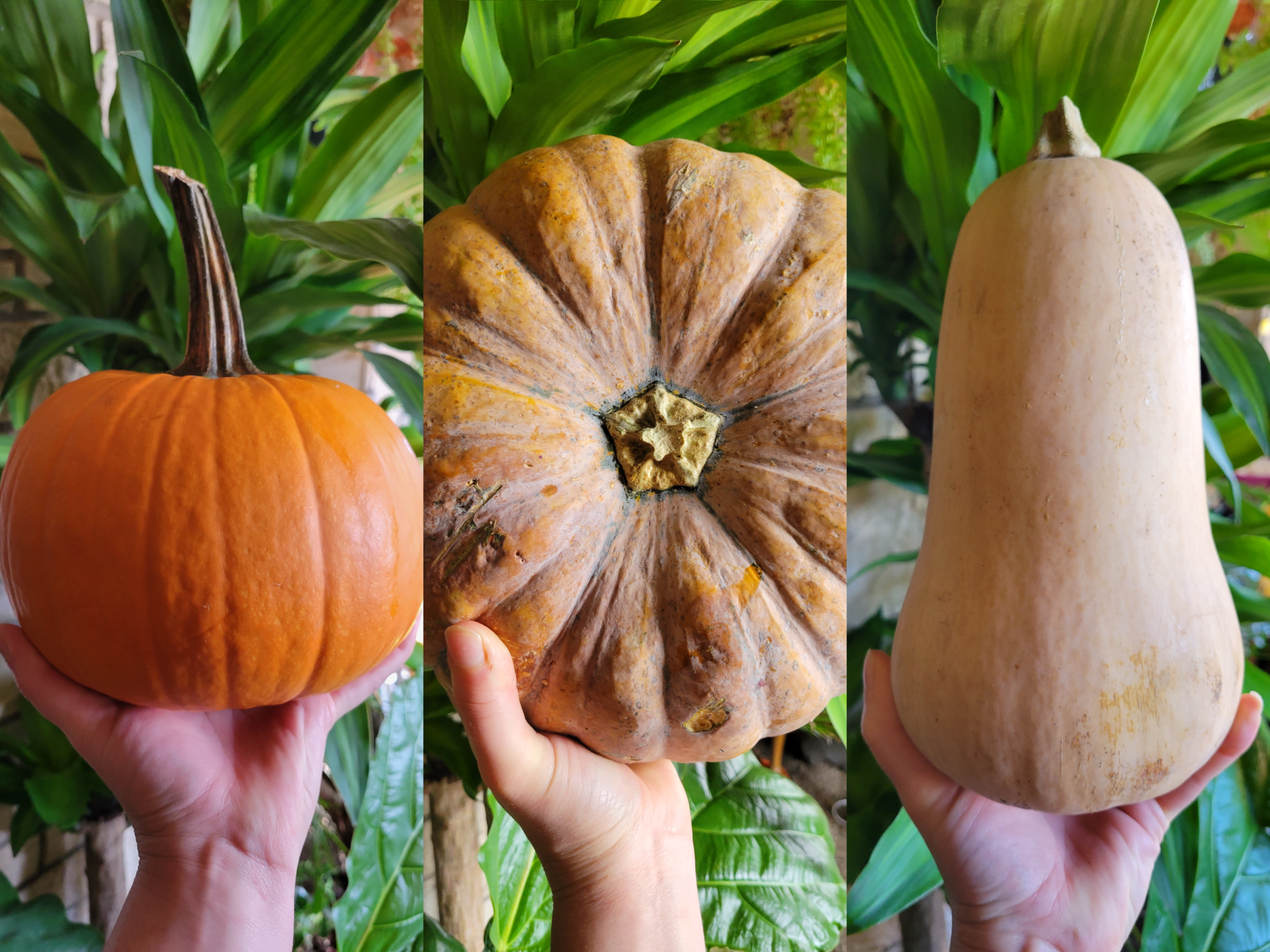
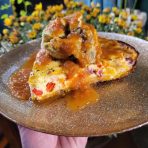
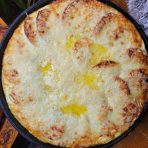

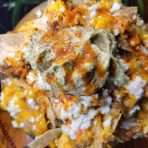
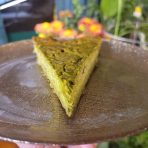
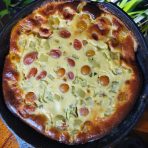
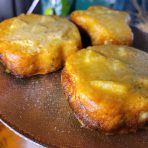
Leave a Reply